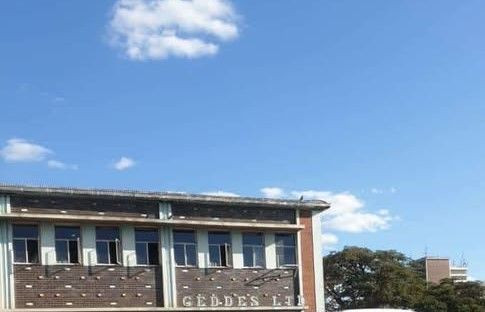
SPEAKER of the National Assembly Jacob Mudenda has urged parliamentarians to maintain a “vigilant oversight” on government expenditure to avoid theft of taxpayers’ money by well-connected individuals and entities, some of whom boast Zanu PF links.
A number of audit reports have revealed how taxpayers’ money is looted in government ministries, departments and agencies (MDAs), especially via inflated tenders by well-connected individuals.
Mudenda yesterday reminded lawmakers that the role of Parliament extended beyond approving Finance and Appropriation Bills to stopping the pillaging of State coffers.
“It also demands vigilant monitoring of budget implementation, including resource disbursements and procurement processes as well as the outcomes and outputs of public expenditure which should be anchored on the value for money principle,” Mudenda said in his address during a pre-budget seminar in Bulawayo.
“Furthermore, section 315 fortifies these principles by mandating procurement procedures that are fair, justifiable, transparent and rigorously cost-effective.
“The primary objective is to safeguard public resources from profligacy and malfeasance, this being consistent with section 45 of the Public Finance Management Act [Chapter 22:19].”
The Auditor-General has previously exposed how taxpayers’ monies are stolen by government officials in State-run enterprises through inflated tenders, among others.
A number of recommendations from the Auditor-General have remained largely ignored, bleeding State-run enterprises, most of which are teetering on the brink of collapse.
- AG’s report shows growing impunity at the heart of govt operation
- Govt depts, ministries fail to account for $1,3bn
- We are now reformed, says Zinara
- We are now reformed, says Zinara
Keep Reading
Mudenda said Parliament had a duty to maintain vigilant oversight on all government expenditure as mandated by section 299 of the Constitution.
“Approving budgetary allocations for MDAs, which flagrantly disregard the Auditor-General’s recommendations, constitutes serious corporate imprudence and a betrayal of fiduciary duty,” he said.
“That is why the Public Accounts Committee bears a singular and weighty responsibility in this oversight framework, wielding constitutional authority that must be exercised with unwavering diligence and moral integrity.
“Accordingly, the Public Accounts Committee is enjoined to ensure that the Auditor-General’s reports receive prompt and thorough responses from accounting officers, with explicit deadlines for remedial action.
“Furthermore, the Public Accounts Committee’s recommendations must precipitate the expeditious tabling of Treasury minutes by the Ministry of Finance, Economic Development and Investment Promotion.”
In his address, Finance minister Mthuli Ncube said the government was too broke to pay some of its contractors, some of whom are owed several millions.
Mudenda, however, linked this to poor revenue collection and taxation systems in the country, citing a National Micro, Small and Medium Enterprise (MSME) Survey showing that a staggering 85,7% of Zimbabwe’s 3,4 million of these are not taxed.
He said the 2026 Budget Strategy Paper committed the government to an aggressive formalisation campaign targeting 5 000 MSME registration by 2026.
“This figure is gapingly paltry compared to the 3,4 million small-scale entrepreneurs.
“By using digital technology, that 5 000 figure can be phenomenally upscaled in order to increase revenue inflows as part of compelling domestic resource mobilisation,” he said, while urging the Zimbabwe Revenue Authority to expedite efforts to leverage on artificial intelligence (AI) in transforming tax administration.
“Through the deployment of predictive analytics, blockchain technology and automated compliance monitoring, AI will enhance administrative efficiency and encourage voluntary compliance across all sectors of the economy, including the informal sector, thereby enhancing revenue streams. What are we waiting for?” he asked.
“Beyond conventional tax revenue inflows, infrastructure development necessitates exploring alternative financing mechanisms that augment government financial resources while creating sustainable funding models for long-term development.”
Previous reports by anti-corruption watchdogs have also exposed how the government is losing billions in tax revenue leakages and other financial outflows.










